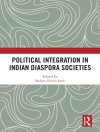Sports history offers many profound insights into the character and complexities of modern imperial rule. This book examines the fortunes of cricket in various colonies as the sport spread across the British Empire. It helps to explain why cricket was so successful, even in places like India, Pakistan and the West Indies where the Anglo-Saxon element remained in a small minority. The story of imperial cricket is really about the colonial quest for identity in the face of the colonisers’ search for authority. The cricket phenomenon was established in nineteenth-century England when the Victorians began glorifying the game as a perfect system of manners, ethics and morals. Cricket has exemplified the colonial relationship between England and Australia and expressed imperialist notions to the greatest extent. In the study of the transfer of imperial cultural forms, South Africa provides one of the most fascinating case studies. From its beginnings in semi-organised form through its unfolding into a contemporary internationalised structure, Caribbean cricket has both marked and been marked by a tight affiliation with complex social processing in the islands and states which make up the West Indies. New Zealand rugby demonstrates many of the themes central to cricket in other countries. While cricket was played in India from 1721 and the Calcutta Cricket Club is probably the second oldest cricket club in the world, the indigenous population was not encouraged to play cricket.
Про автора
John Mac Kenzie is Emeritus Professor of Imperial History, Lancaster University and holds Honorary Professorships at Aberdeen, St Andrews and Stirling, as well as an Honorary Fellowship at Edinburgh.












